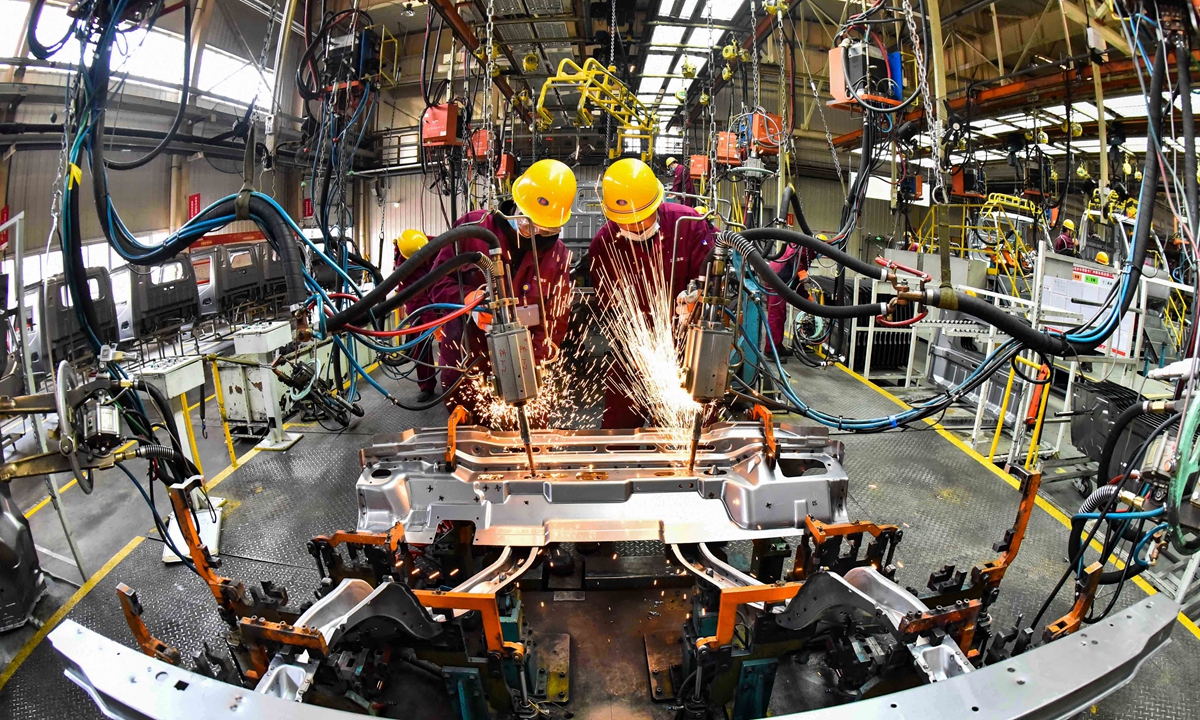 Factories across China are gradually resuming production after the Spring Festival holidays, making a somewhat bright start to 2022, a year that presents uncertainties in terms of global trade, given the unabated COVID-19 pandemic and geopolitical tensions.
Factories across China are gradually resuming production after the Spring Festival holidays, making a somewhat bright start to 2022, a year that presents uncertainties in terms of global trade, given the unabated COVID-19 pandemic and geopolitical tensions.
Despite the uncertainties, many companies are still busy filling massive export orders and remain confident about their export prospects this year. But some industry participants also worry that the growth of new clients is being disrupted by the pandemic, which could result in a significant slowdown in export growth.
More than 88 percent of the shops in the Yiwu International Trade City opened on the first business day after the 2022 Spring Festival, according to yicai.com. The trade city is the primary wholesale market complex in Yiwu, East China's Zhejiang Province, and it's often been dubbed the world's small commodity export hub. On the first day of the year of Tiger, about 39,000 buyers visited the market, according to the report.
Zhang Jiying, general manager with RealStar, an umbrella producer, told the Global Times on Sunday that the firm has been working at full swing to meet export orders since it got back to work on Saturday.
The company can make 6,000-7,000 umbrellas a day, with exports going to about 100 countries and regions, including Spain and France.
Factories from other areas of the country are also beefing up production after the holiday. Duan Lianmin, a manager of a Shenzhen-based glass factory, told the Global Times on Sunday that all the factory's workers have returned after the break.
"We stocked up some raw materials ahead of the Spring Festival in case of price rises. Our orders are relatively stable, and our shipments haven't been delayed by the pandemic," Duan said.
Certain industries have even seen a boom, which pushed factories to continue work during the holiday. A source at Sansure Biotech, a domestic testing kit maker in Changsha, Central China's Hunan Province, for example, told the Global Times that the company worked overtime during the Chinese New Year to fill export orders.
The company provided bonuses for those who worked during the holidays. Full production resumed on February 4, earlier than usual, to meet rising global demand, the source said.
However, despite the orderly work resumption, which seems to signal a good start for this year's trade, experts are concerned due to changes in the pandemic.
"As coronavirus gradually wanes in the world, global demand might shift from commodities to services, which will exert a negative impact on China's export growth this year," Wu Chaoming, chief economist at Chasing Securities, told the Global Times on Sunday.
Wu said that the improvement of the pandemic will ease supply chain tightness and cause products stockpiled at ports to flow into selling channels, which will hurt global exports to some extent as it will take some time to digest the inventory.
However, he said, the global economic recovery will give some support to exports, while imports will be stable as a result of China's pent-up investment in infrastructure.
He predicted that China's export growth could slow to about 5-10 percent this year. Last year, China's exports surged by 29.9 percent in US dollar terms, data from the Chinese customs showed.
Companies are uncertain about this year's prospects, with some having confidence, while others still have concerns about the negative impact from the coronavirus.
"We are mainly serving existing clients this year since the remaining travel restrictions posed by the global pandemic have made it difficult for us to meet new clients," Zhang said, adding that she hopes this year's business could get better despite these hurdles.
Source: Global Times